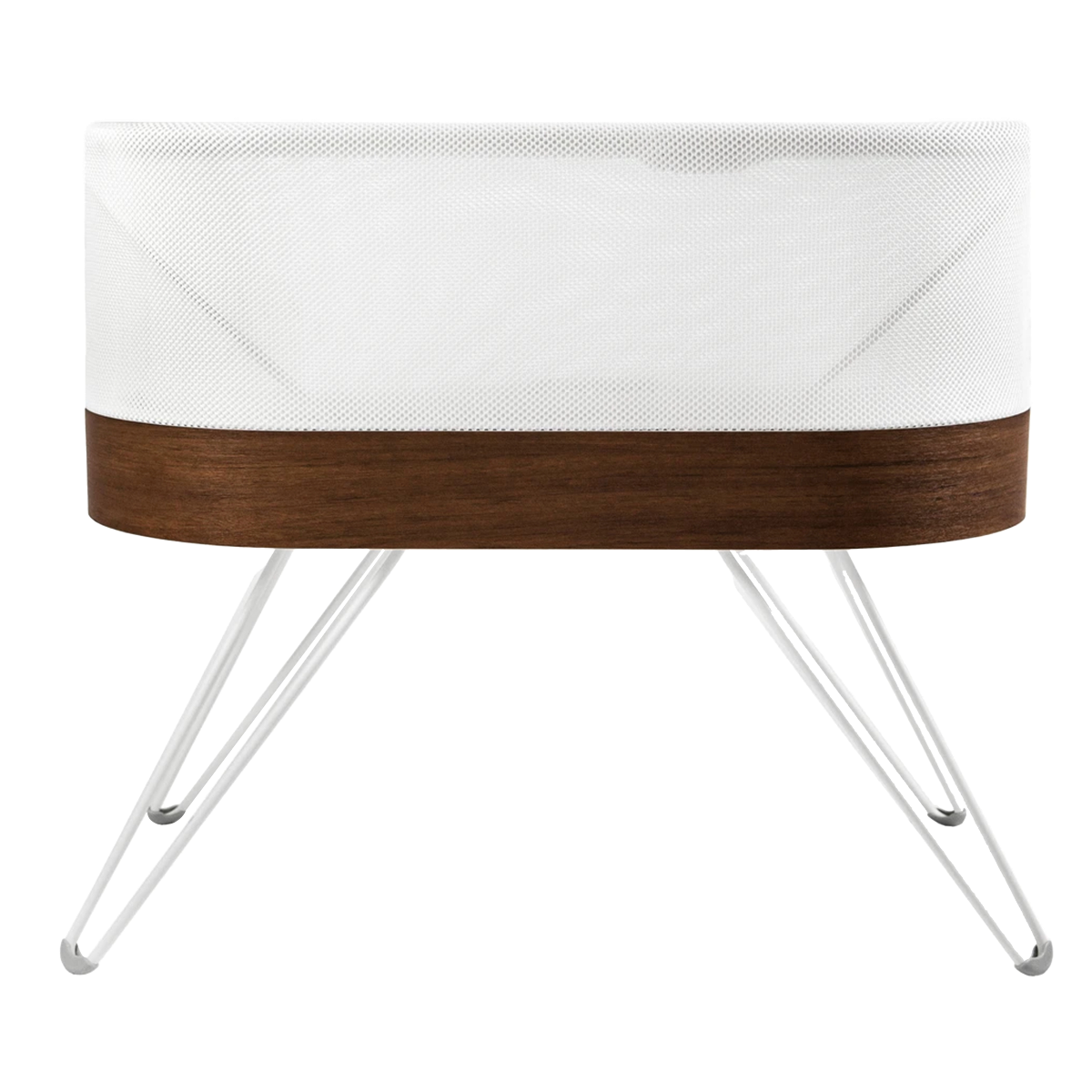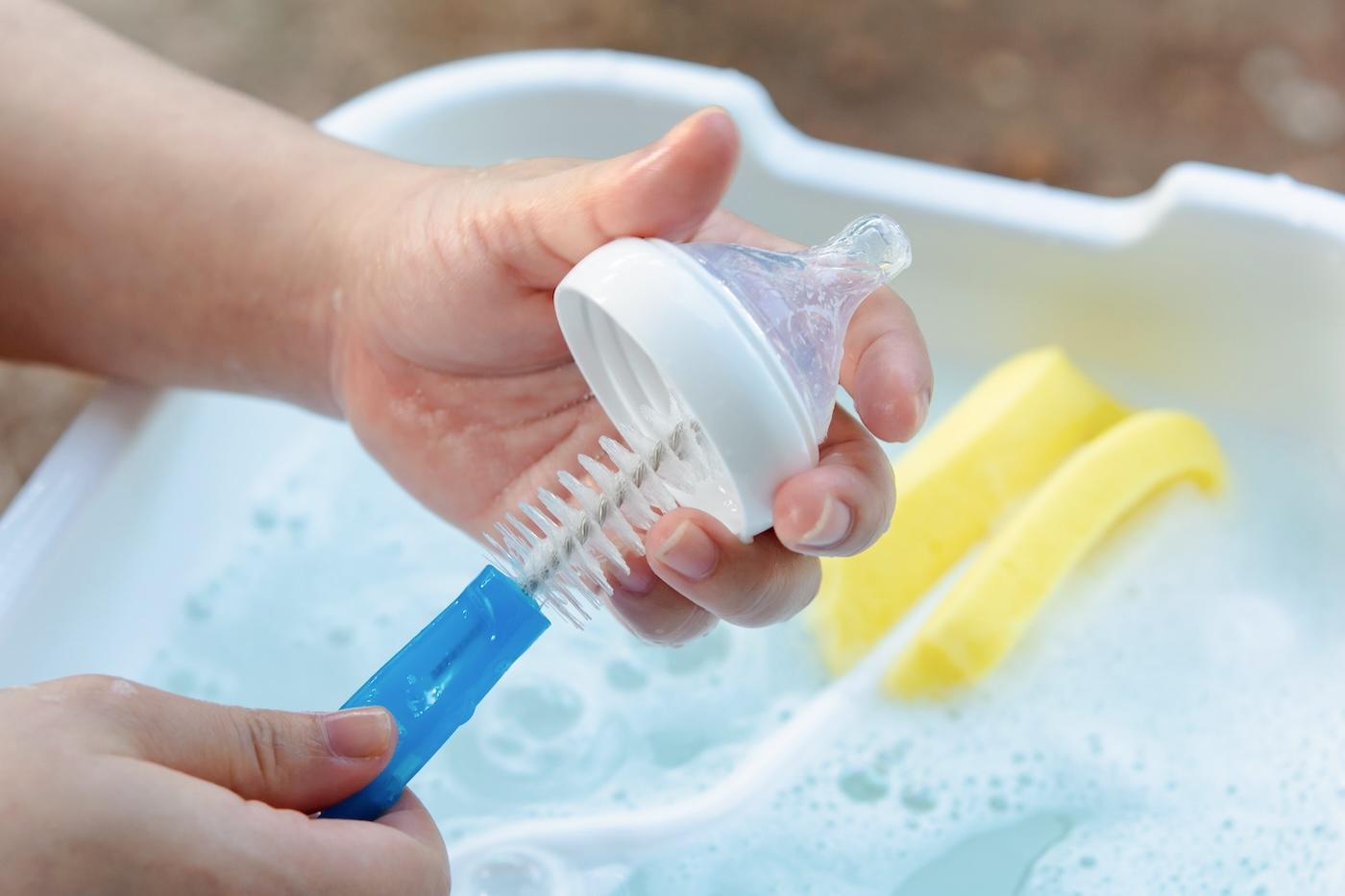BABY
Croup: What to Know About This Icky-Sounding Cough
Baby’s barky cough can be scary! But once you know more about croup, the easier it’ll be to treat this common childhood illness.

Written by
Happiest Baby Staff

Was that a seal barking from the nursery? Croup is a common childhood respiratory illness that’s best known for its telltale barky cough that keeps babies and toddlers up at night. While the cough is for-sure scary-sounding, croup is usually fairly mild and can be properly treated at home. That said, croup can progress to a more serious illness that requires medical attention. In fact, 7% of children with croup need hospitalization, according to the American Family Physician. That’s why it’s important to know the croup symptoms to look out for. Here’s everything you need to know to keep your baby safe.
What is croup?
Croup is a respiratory illness that causes inflammation in your kiddo’s vocal cords (larynx), windpipe (trachea), and bronchial tubes (bronchi). That inflammation leads to swelling that narrows the airways, which ultimately makes breathing labored and noisy. (Enter those seal-like barks!) Children between the ages of 3 months and 5 years are most affected. As kids grow, so do their windpipes. So even if a big kid’s windpipe swells, it’s far less likely to mess with their breathing. While croup can strike no matter the season, it most often occurs in the fall and winter months.
What causes croup?
In most cases, a viral infection can be blamed for your baby’s croup. Something called human parainfluenza viruses (HPIVs) is the leading cause of childhood respiratory infections, responsible for up to 40% of illnesses like croup. (Viruses like influenza and respiratory syncytial virus, also known as RSV, are also culprits.) At the same time, new research in the journal Pediatrics noted that the omicron variant of COVID-19 may cause croup in children, too. Although less common, allergies and gastroesophageal reflux can also be behind your baby or toddler’s croup. This type of croup is called spasmodic croup.
Is croup contagious?
Yes, croup is contagious. After all, viruses cause most croup cases. So, one kiddo with croup can spread the virus to another child who can go on to develop croup. However, teens only occasionally get croup, and adults rarely do. The same practices that prevent the spread of colds—such as frequent hand washing and covering coughs and sneezes—help prevent the spread of croup.
What is recurrent croup?
When a child gets croup more than twice a year, that’s considered recurrent croup. If this is your kiddo, you may want to consider getting an evaluation by an ear, nose, and throat doctor (also called an ENT or otolaryngologist), a pediatric gastroenterologist, or a pulmonologist to help rule out any possible underlying issues, like a narrow upper airway or reflux, that may be causing recurring croup.
What are the symptoms of croup?
Croup usually starts off innocently enough with classic cold symptoms, such as a runny nose, sneezing, cough, and mild fever. Slowly, however, these symptoms morph into the following:
-
Hoarseness - Frequent, barking cough
- High-pitched, squeaking sound made on the inhale; sometimes described as a raspy vibrating noise (called stridor)
- Difficulty breathing
- Fast breathing
- Retractions, when the skin between the ribs sucks in while breathing
Croup symptoms are most severe in tots under the age of 3. While viral croup symptoms are more of a slow creep, symptoms for spasmodic croup tend to strike suddenly in the middle of the night without a fever.
How long does croup last?
No matter what caused your baby’s croup, symptoms typically get worse at night and last for three to five days. Once that seal-like cough subsides, a looser-sounding cough often takes its place, but this does not mean that your little one’s infection has moved to their chest! That tight-bark-to-phlegmy-hack is a natural cough progression in croup.
How to Prevent Croup
Like the common cold, croup is tricky to prevent, but regularly washing hands and cleaning surfaces is your best defense. That said, there are a couple of other things that parent and parents-to-be can do that may further protect their little ones:
- If pregnant, consider supplements. A recent randomized control trial found that babies and children under 3 years old were less likely to develop croup if their mothers took relatively high doses fish oil and vitamin D supplements from their 24th week of pregnancy until the week after delivery. It’s thought that the pair of supplements may stimulate children’s immune systems, which helps little ones clear infections more effectively. (Always speak to your care provider before taking any supplements during pregnancy.)
- Stop smoking and vaping. Research shows that children whose parents regularly smoke or vape marijuana may experience viral respiratory infections, such colic, more frequently than those whose parents do not smoke.
Croup Home Remedies
The good news is that most kiddos with croup can recover at home without the use of any medications. Here are some symptom-soothers that may help your child along the path to croup recovery:
-
Offer plenty of fluids. For babies, breastmilk or formula works well. For older tykes, soup, frozen fruit pops, or water may be soothing. - Allow lots of rest. Fatigue can worsen croup symptoms.
- Give cuddles! Keeping your little one calm and comforted is super important, especially since crying can worsen airway obstruction.
- Run a cool-mist humidifier. The chilled air works great to soothe your baby’s dry upper airways, which eases breathing. Place it close to your child, but safely out of their reach.
- Try steam. Sit with your child for about 20 minutes in a bathroom that’s filled with steam from a hot, running shower, allowing your baby or toddler to breathe in the warm, moist air.
- Breathe cold air. If it’s cool outside, carry your coughing child outdoors to breathe in the cold night air for 10 minutes, which is also thought to help open the airway. (Breathing in the icy air from an open freezer can also work.)
When to Call the Doctor About Croup
Don’t be shy about reaching out to your child’s pediatrician whenever you’re worried about your child’s cough. The doctor is there not only to treat your child, but to guide you through all the questions you have regarding your child’s health and well-being. That said, definitely tap the doc if croup symptoms persist beyond five days or worsen. And call 911 if your child experiences any of the following:
- Struggles to catch their breath
- Bluish lips or fingernails
- Stridor occurs while resting (remember, stridor is a course, whistling sound made while inhaling)
- Difficulty swallowing saliva (or drooling)
- Can’t speak because of a lack of breath
- Dehydrated (signs include dry mouth, few or no tears when crying, sunken eyes, less frequent urination)
Treating Croup With Medication
If your child’s symptoms have lasted longer than five days or have gotten worse, the pediatrician may recommend one or more of the following:
-
Corticosteroids: Steroids such dexamethasone, prednisone, or prednisolone may be administered to help tamp down inflammation in your child’s airway in just a few hours. - Epinephrine (adrenaline): This medication decreases swelling in the airway, but it requires close observation in the hospital for about four hours afterward to ensure croup symptoms don’t return. At times, a hospital stay is needed.
- Allergy or reflux meds: These are only used for spasmodic croup.
By the way, since croup is almost exclusively caused by a virus, allergies, or reflux, antibiotics are not an appropriate croup treatment… and neither is cough medicine. In fact, the American Academy of Pediatrics does not recommend over-the-counter cough and cold medicines for any kiddo younger than 4 because 1) they don’t work, and 2) they can be dangerous.
More on common childhood illnesses:
- Enterovirus Explainer: What Parents Need to Know
- What You Need to Know About Fifth Disease
- Dr. Harvey Karp’s Guide to Hand-Foot-Mouth Disease
- How to Treat Cold and Flu in Newborns
***
REFRENCES
- Croup: Diagnosis and Management. American Family Physician. May 2018
- American Academy of Pediatrics (AAP): Croup and Your Young Child
- Michigan Health: What is croup?
- University of Wisconsin-Madison: Scientists develop better way to block viruses that cause childhood respiratory infections
- COVID-19–Associated Croup in Children. May 2022
- Croup: An Overview. American Family Physician. May 2011
- Nemours Children’s Health, KidsHealth: Croup
- Fish Oil and Vitamin D Supplementations in Pregnancy Protect Against Childhood Croup. The Journal of Allergy and Clinical Immunology: In Practice. September 2022
- Association between secondhand marijuana smoke and respiratory infections in children. Pediatric Research. July 2021
- Cleveland Clinic: How to Care for Your Child’s Croupy Cough
- Harvard Health Publishing: Croup
- AAP: Caring for Your Child’s Cold or Flu
Disclaimer: The information on our site is NOT medical advice for any specific person or condition. It is only meant as general information. If you have any medical questions and concerns about your child or yourself, please contact your health provider.
SHARE THIS ARTICLE
MOST LOVED
Sleepytime Sidekicks












